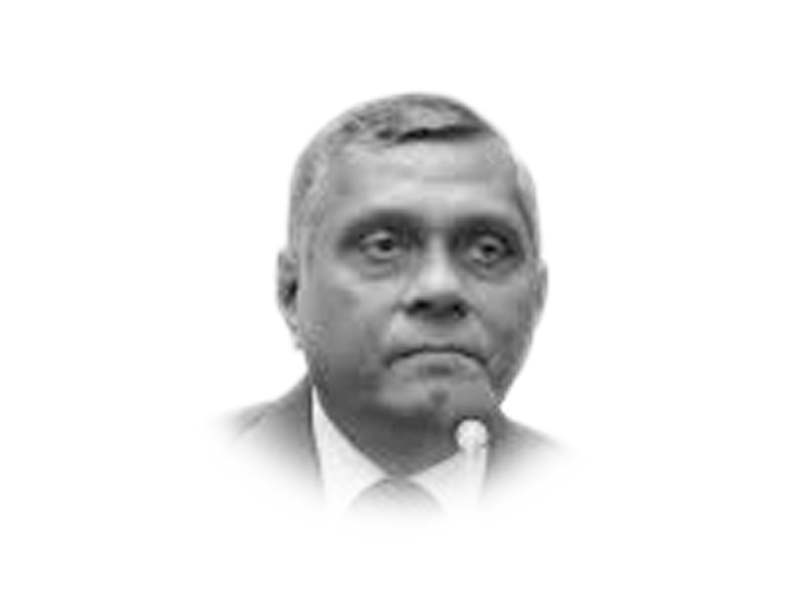
The paradigm shift in Pak-India relations reflects Pakistan’s desire to resolve contentious issues with New Delhi despite the fact that the Indian response has been lukewarm — at times even hostile. Three decades ago, it was India which used to follow a conciliatory and persuasive approach with Islamabad for promoting people-to-people contact as well as trade and commerce as a confidence-building measure. Pakistan’s response to Indian gestures at that time lacked warmth and reciprocity as it used to remind India that without the resolution of the Kashmir issue in accordance with the UN Security Council resolutions, it cannot positively react to New Delhi’s offer of dialogue. The composite dialogue — now comprehensive dialogue — which began in 1997 failed to take off as both sides refused to abandon their traditional stance.
Why is Pakistan now pursuing a unilateral approach to normalise relations with India? How will Modi’s return to power by securing a landslide victory in the general elections have an impact on India’s relations with its western neighbour? Why is Prime Minister Imran Khan optimistic that the BJP’s return to power will help resolve contentious issues with India and normalise relations with it?
In view of Modi’s and his BJP’s bias against Pakistan, it will be a wishful thinking on the part of Islamabad that in his second term, the Indian government will have a ‘change of heart’ and it will positively reciprocate Islamabad’s gesture for a new beginning. Three logical reasons substantiate the argument that unilateralism on the part of Pakistan to have cordial relations with India will not work.
First, Modi and his BJP have neither forgotten nor forgiven the humiliation which they had to undergo in the aftermath of the so-called surgical strikes in Balokot on February 26 and the subsequent shooting down of two Indian MiG planes on February 27 by the Pakistan Air Force. Modi’s attempt to retaliate against Pakistan fizzled out when Islamabad warned of serious consequences if attacked. The worst part of Modi’s misadventure in Balakot was the embarrassment his government had to face inside his country and also at the international level. Now, after securing a second term with a landslide victory, it will be Modi’s strategy to settle scores with Pakistan and to restore his credibility which got badly shaken because of the wrong claims of the destruction of alleged terrorist hideouts in Balakot.
Second, arrogance and overconfidence now shape the mindset of India’s ruling elite in its dealing with Pakistan. The widening of asymmetry between the Indian and Pakistani economies, science and technology and its networking at the international level provide New Delhi with a justification to ignore Pakistan and its repeated offers of dialogue. In view of its growing power and prestige, India believes that it will only talk to Pakistan on its own terms. India may agree to the resumption of the comprehensive dialogue — which has been suspended for the last so many years — but only if Pakistan agrees to only discuss the issue of cross-border terrorism and accept New Delhi’s superiority in the region. For India, Pakistan, as compared to other countries of the region, is still a ‘pain in the neck’ because it challenges New Delhi’s expansionist and aggressive designs in South Asia. The Modi regime will not pursue a conciliatory posture vis-à-vis Pakistan because it is confident that it can browbeat its western neighbour by escalating the tensions and forcing Islamabad to augment its defence expenditures resulting in serious economic fallout.
Third, having strengthened its ties with Israel and establishing good equation with the United States, the Modi regime is unlikely to think about launching another adventure against Pakistan in the form of ‘surgical strikes’ in order to compensate for its loss of credibility and earlier losses. However, Pakistan-bashing — as well as use of hard power to quell popular uprising in occupied Kashmir — would remain an important pillar of the BJP policies during its second term in office.
How should then Pakistan cope with another five years of the BJP rule and to what extent can it find space to meet serious challenges emanating from the hostile stance of the Modi regime?
Three possibilities exist for Pakistan in the post-Indian election scenario. They are as follows:
First, focusing on its economy and governance will go a long way in not only confidently dealing with the Modi regime but also coping with regional and international challenges.
Second, if India is drifting into the vicious cycle of Hindu extremism and fanaticism, Pakistan needs to curb and neutralise those forces which in the last four decades not only shattered the image of Pakistan but also deepened extremism, intolerance, radicalisation of youth, violence and terrorism. If religious minorities in India are targeted by Hindu extremist groups namely Shiv Sena, Sangh Pariwar, Bajrang Dal and RSS, Pakistan needs to make sure that the so-called religious extremist forces responsible for fanning sectarian divide and targeting minorities and women are liquidated. An enlightened, democratic and egalitarian Pakistan will provide an effective response to the rising tide of Hindu nationalism. One cannot expect a paradigm shift in Modi’s approach towards religious minorities, Kashmir and Pakistan. On the contrary, one can expect a more aggressive and intolerant BJP government following the landslide mandate it has secured in recent elections. If Pakistan is able to manage its internal issues, not only its powerful neighbour India but the world will also value the country. To what extent the state and society of Pakistan will seize the opportunity to transform the country into a peaceful, tolerant, enlightened and democratic state needs to be seen.
Third, Pakistan must not overreact to any Indian provocative acts and escalation in defence expenditures because one can expect the Modi regime to drag Pakistan into an armed conflict. Pakistan acted in a prudent manner in the face of Indian aggression in Balakot as Modi’s plan was to capitalise on the Pulwama incident to gain advantage in the elections. A vigilant and careful Pakistan ably facing the Modi regime’s bluster will definitely ensure its security.
The Modi regime would obviously like to deal with Pakistan on his own terms, like urging Pakistan to relinquish its position on IOK and accept the Line of Control as a permanent border between the two countries. For India, the IOK resolution model needs to be similar to what Israel has been pursuing in the occupied West Bank i.e. absorption of occupied Palestinian territory into Israel by force. Unfortunately, unlike Israel where there is no constitutional hitch to annex West Bank, Articles 370 and 35-A prevent the central government of India from revoking the special status given to the state of Jammu and Kashmir. It seems the Modi regime — now confident with a thumping majority — will venture into an exercise of getting rid of both the articles.
Any attempt to change the status of the occupied state would escalate conflict with Pakistan and plunge the Muslim-dominated valley in large-scale violence. In its essence, Pakistan must not follow a policy of ‘unilateralism’ with India as far as the question of resuming the peace process is concerned. Only if India agrees to break the standoff by holding meaningful dialogue on an equal footing with Pakistan, one can expect some positives as regards the conflicts between the two neighbours.
Published in The Express Tribune, May 31st, 2019.
Like Opinion & Editorial on Facebook, follow @ETOpEd on Twitter to receive all updates on all our daily pieces.












COMMENTS
Comments are moderated and generally will be posted if they are on-topic and not abusive.
For more information, please see our Comments FAQ